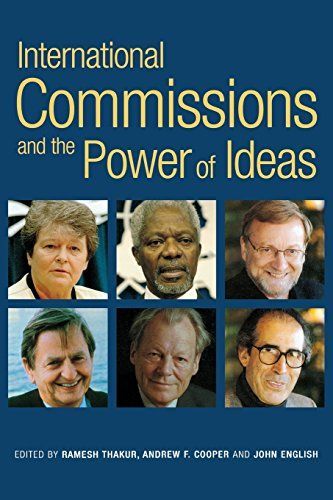
International Commissions and the Power of Ideas
This book assesses how international commissions have shaped, and even reshaped, our understanding of international affairs and the international discourse on a wide range of global issues. These issues include the global economic order and the discrepancies in wealth between economies in the North and the South; international security and the utility of nuclear weapons; and environmentalism and the demands of economic growth. More recently, international commissions have examined whether the international community will ever accept the idea that military intervention is a legitimate option when confronted by the possibility of genocide and mass human rights violations against whole populations. The varying experiences and influences of eight separate international commissions are scrutinised: Brandt, Palme, Brundtland, the Commission on Global Governance, Canberra, the World Commission on Dams, the Kosovo Commission and the International Commission on Intervention and State Sovereignty (ICISS). Few scholars and practitioners would suggest that international commissions offer perfect solutions to some of the contemporary problems of their time. But this book offers strong support for the argument that ideas matter as key agents in the evolution of global governance. International commissions can often act as the mechanism that brings ideas and institutions together.